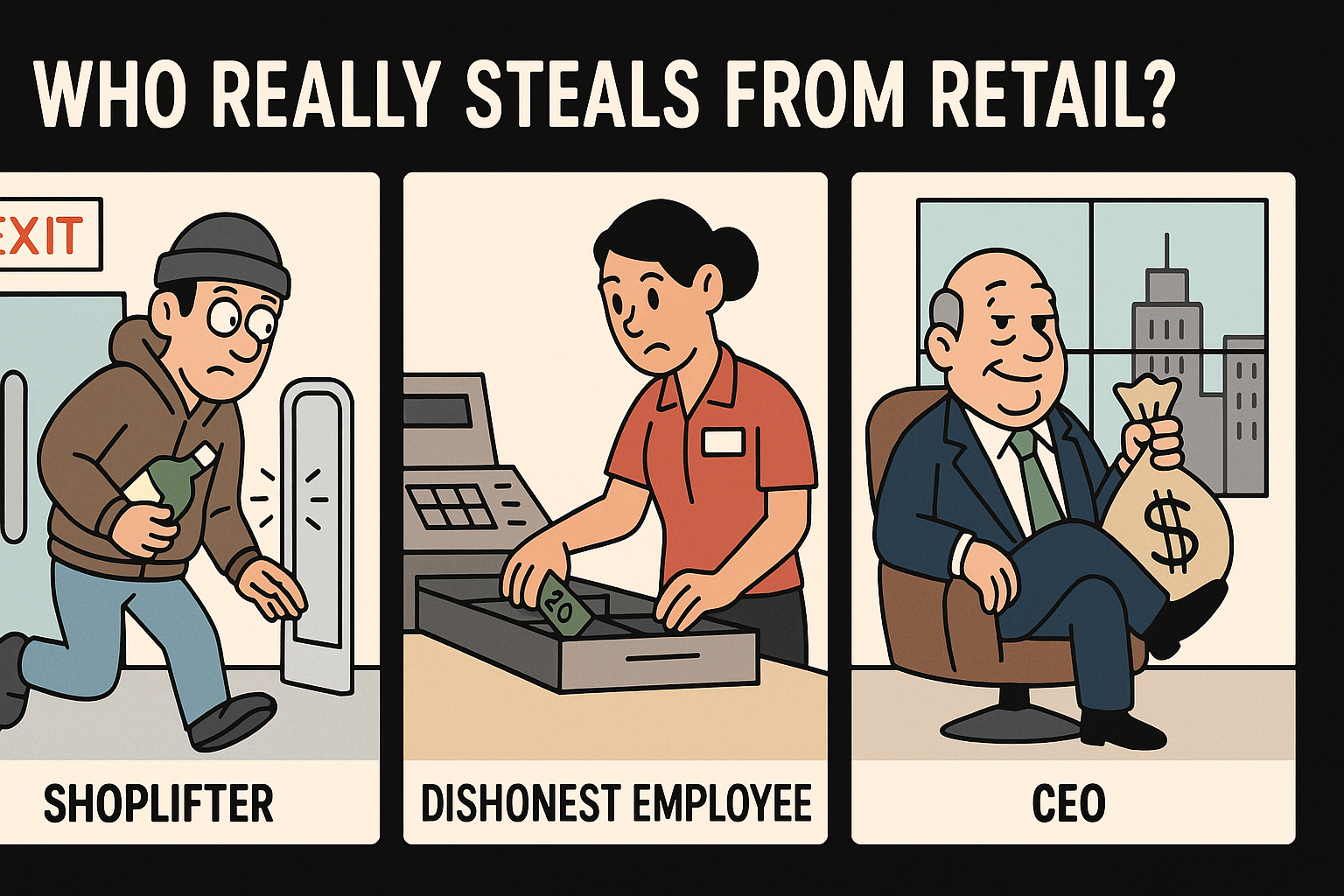Who Really Steals?
written by
jaron summers (2025)
In the grand accounting ledgers of America’s largest retail empires, much ink is spilled tracking shoplifters and dishonest employees.
Surveillance cameras, anti-theft tags, and shrinkage reports all point fingers at the small-time thief — the customer sneaking out a bottle of shampoo or the cashier who skims twenty bucks from the till.
But zoom out just a bit, and a much more sophisticated and costly kind of theft becomes visible, carried out not in hoodies or aprons, but in tailored suits and boardrooms.
Take Walmart and Amazon, two titans of modern commerce.
Each year, both lose millions to customer theft and employee fraud. But these losses pale in comparison to the executive-level siphoning of wealth — legal, yes, but no less parasitic.
Walmart, once a champion of cost-cutting efficiency, has faced waves of criticism for gutting employee pensions, resisting unionization, and outsourcing labor to drive down costs — all while awarding its C-suite executives tens of millions in stock options and bonuses.
Sam Walton’s homespun ethic of thrift has long been replaced by a culture of executive excess, where one man’s “cost savings” is another’s private jet.
Amazon, meanwhile, built an empire on squeezing every molecule of value from labor and logistics.
Its warehouse workers have become the modern-day coal miners — overworked, under-monitored, and discarded the moment efficiency drops.
Yet while employees race against robotic timers for bathroom breaks, Jeff Bezos rode a rocket into space and dumped billions of dollars of stock for personal ventures.
Shareholders cheer, regulators blink, and the R&D departments are quietly streamlined, with innovation increasingly outsourced or acquired rather than nurtured in-house.
Even the U.S. Postal Service, technically a public service, isn’t immune.
While not retail in the classic sense, it’s been subjected to a slow, deliberate bleed by corporate interests — pushed toward privatization, shackled by pension pre-funding laws, and weakened to the benefit of private couriers like FedEx and Amazon.
Its theft isn’t from employees pocketing stamps, but from political operatives and corporate cronies who would rather see its assets transferred to shareholders than used in the public interest.
In the end, yes — customers shoplift. Employees commit fraud. But the real looters wear cufflinks and sit on compensation committees.
They don’t need to hide a sweater under a coat; they write the rules that make the sweater — and the whole factory — legally theirs.
